by Travis Barrett
Maine’s black bear biologists are leaders in their field, a fact only cemented with their recent work with both the Eastern Black Bear Workshop and Northeast Black Bear Technical Committee.
In early May, Maine Department of Inland Fisheries and Wildlife biologists Jennifer Vashon and Randy Cross traveled to Hendersonville, N.C., to participate in the 20th Eastern Black Bear Workshop. With more than 30 years of intensive black bear research taking place in the state, Vashon’s “Maine Black Bear Management” was a featured seminar at the four-day event.
“There is a great deal of respect out there for what Maine has done,” Cross said.
As well there should be.
Maine boasts the largest population of black bears in the continental United States. Yet while the state has so many black bears living in our midst, there are relatively few negative interactions with the species.
Not only do DIF&W wildlife biologists have to manage the black bear populations to afford the best opportunities for the state’s hunters, but it also weighs population numbers in an effort to minimize those same negative interactions with humans while providing viewing opportunities for the state’s avid wildlife watchers.
 “We only have 4,000–5,000 resident bear hunters in Maine,” Cross said. “But we also have to serve the other 1.3 million people who don’t hunt bears.
“We only have 4,000–5,000 resident bear hunters in Maine,” Cross said. “But we also have to serve the other 1.3 million people who don’t hunt bears.
“There are far more people affected by bears than actually hunt them. Most people don’t hunt them, obviously, but those people also have a strong interest in bears.”
Maine’s residents aren’t the only people with interest in the state’s bear populations. Bear biologists in other states keep a keen eye on the work the Department is doing.
“You really feel good about what we’re accomplishing in Maine, even with the limited resources we sometimes have,” Vashon said. “You realize that other states are saying, ‘We wish we had the amount of information that you have.’”
While some southern states have had to work hard just to recover a fading black bear population, Maine is one of a few states with long-term telemetry studies on bear population numbers. Maine stands alone with the scale and intensity of the studies it has performed. For 35 years, Maine has studied bears on 3 different sites that represent similar areas across the state. This information is essential in tracking how many bears are in the state.
“Some states are just starting to recover bears and are now faced with figuring out how to manage their populations,” Vashon said. “We went to the EBBW trying to figure out how we can improve on what we’ve already done—there are new technologies, new software and new programs out there.”
In 2013, Maine will host the Eastern Black Bear Workshop. The Workshop meets every two years as an opportunity for the nation’s black bear biologists to get together and discuss different techniques for population modeling, management and data collection.
During the Workshop, the Northeast Black Bear Technical Committee also meets. Sixteen states and provinces are part of that committee, on which Vashon recently served as the chairperson.
Currently, the committee is developing a document which outlines how states are dealing with nuisance bears. Every management tool for black bears is on the table.
“There’s no ‘magic bullet’ technique for resolving bear conflicts, but altering how people respond can be very effective – like bringing in birdfeeders and taking garbage to the curb on the morning of pickup,” Vashon said. “Places having the most problems with bears are where there are more people. We have relatively few big places where there are black bears—Caribou, Presque Isle, etc. Because our bear population is the greatest where we have fewer people, we do not experience the conflicts that other states do.”
“We’re not like New Jersey or New York.”
When it comes time for other states to consider monitoring their bear populations, they turn to Maine.
“That’s where Maine stands out,” Vashon said. “It’s in part because of our management history, and it’s in part because of our bear population. We’ve done a really good job in that area.”
But Vashon and Cross and other Department biologists who study black bears aren’t resting on their laurels. They continue to search for the best information and techniques available.
“The amount of black bear knowledge in those (conference) rooms is just astounding,” Cross said. “It’s an incredible resource once you get to know these people. You can make so much progress by really reaching out to someone who knows so much more than you do or has been working 8–10 years on something specific you have a question about.”
And many times, those who do have questions turn to Maine’s black bear leadership for advice.
Tell us what you think in the comments section below.
Photos: Huffington Post (top), Bangor Daily News (above)

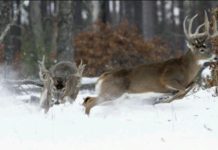
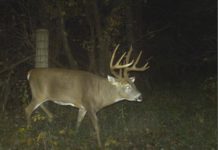
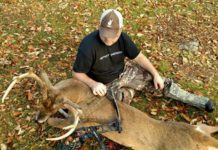
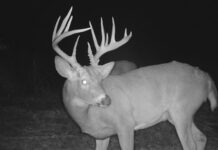





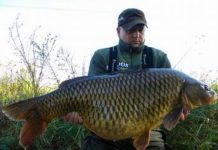
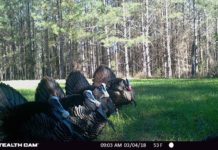
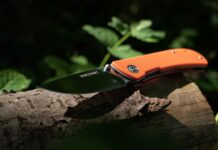
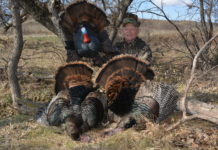

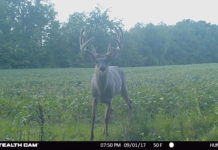
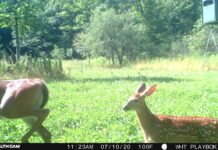
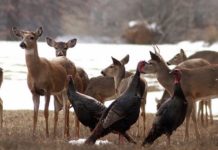
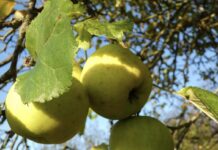
![The Best Deer Camp Chili [VIDEO] Deer Chili Ingredients, Tomatoes, Chili Spices](/wp-content/uploads/2015/10/Deer-Chili-Deer-Camp-Recipe-218x150.jpg)
![How to Call Elk Early in the Season [VIDEO]](/wp-content/uploads/2016/08/byers003-218x150.jpg)

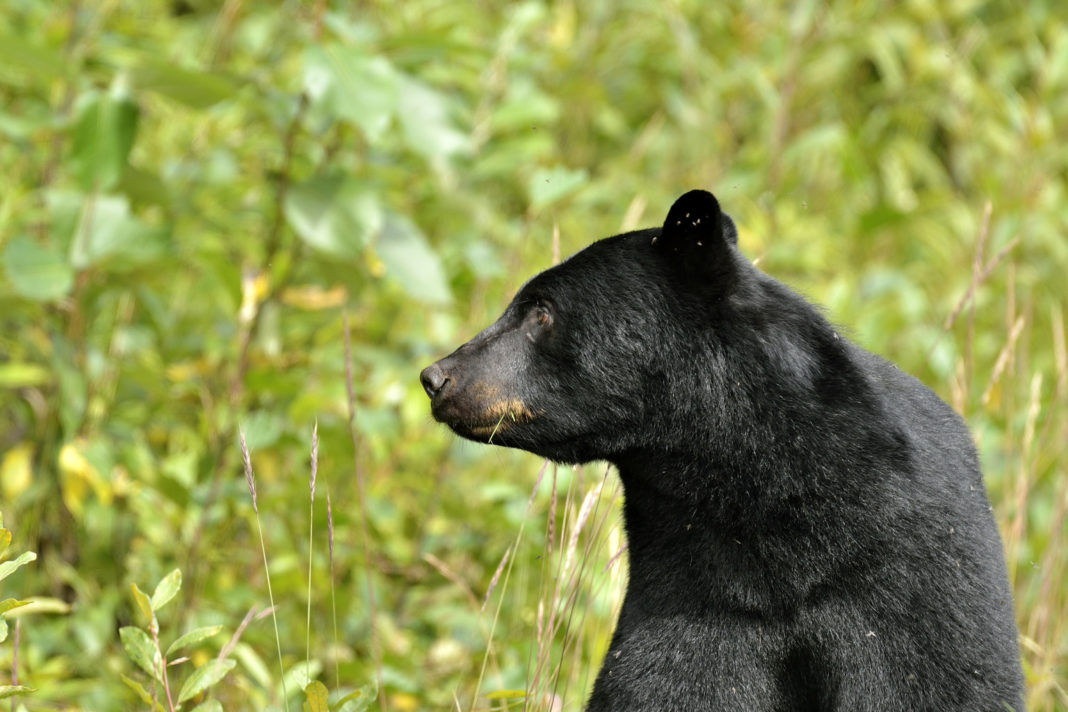


![Idiots Disturb Hunter: How Would You Have Handled It? [VIDEO]](/wp-content/uploads/2015/10/DSC00110-e1474487693878-100x70.jpg)
![Albino Buck Shocked to Shed His Antlers [VIDEO]](/wp-content/uploads/2015/10/AlbinoDeer-100x70.jpg)